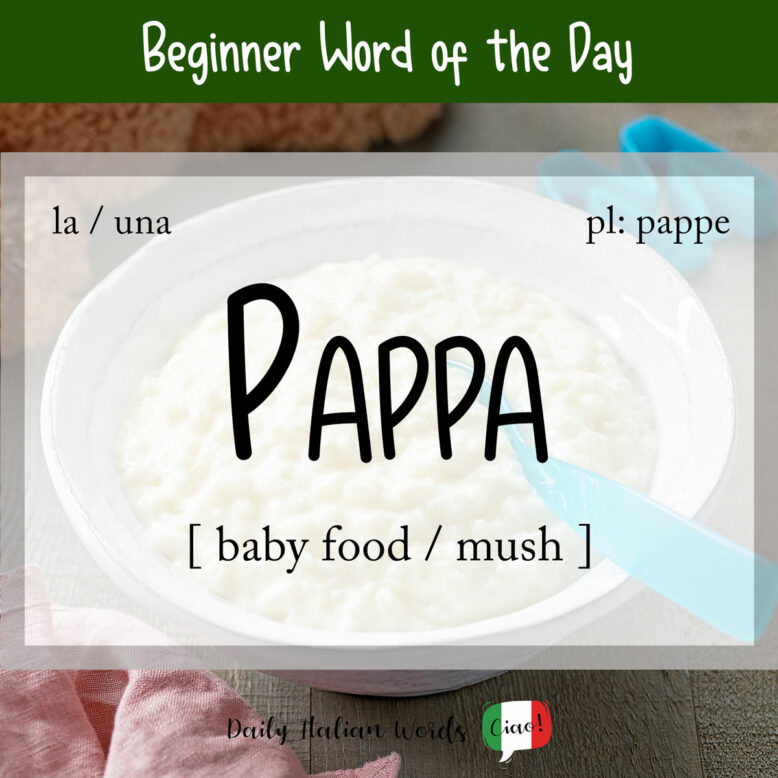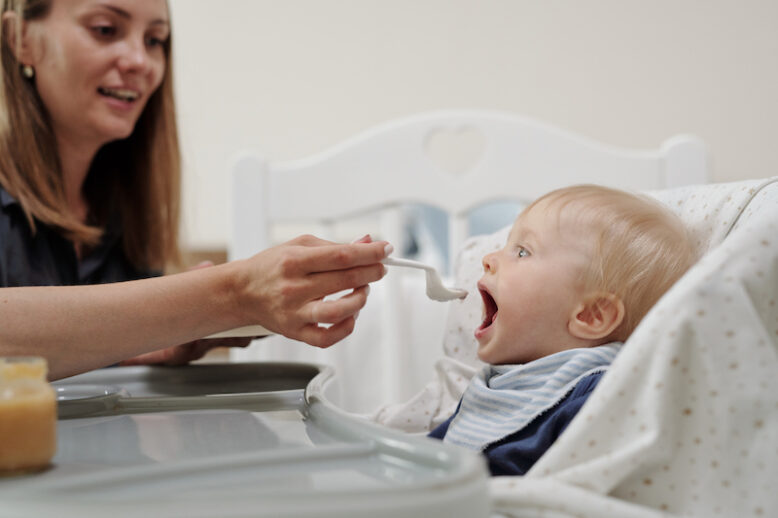The word pappa (feminine, plural: pappe) in Italian traditionally refers to a thick minestra (soup) cooked in water, broth or milk, containing bread or semolina. It is used as food for newly weaned babies or for adults who have difficulty chewing.

These days, pappa refers more broadly to any dish with a mushy texture, including porridge, all types of baby food, and even overcooked risotto or pasta.
Vuoi che mangi questa pappa? Ma neanche morto! Mangiala tu!
You want me to eat this mush? No way! You eat it!

What’s more, when addressing children, its meaning can be extended to food in general, or a meal at any time of day, regardless of its consistency! Used in this broad sense, it is similar in meaning to the infantile expression din-dins in English.
Bambini, venite a tavola: la pappa è pronta!
Kids, come to the table: breakfast / lunch / dinner is ready!

Quite often, you will hear the diminutive form pappetta used instead of pappa.
Ho dimenticato il risotto sui fornelli ed è diventato una pappetta immangiabile.
I forgot the risotto on the stove and it became an inedible mushy mess.
Related to pappa is the verb pappare which has two meanings:
- to wolf down, to devour, to gobble up (food)
- to make off with, to pocket (money, an inheritance, etc.)
Idioms featuring the word ‘pappa’
Volere / trovare la pappa pronta
Literal translation: to want / to find ready-made food
English meaning: to want to be spoon-fed / to find everything already done for you
Essere pappa e ciccia
Literal translation: to be mush and flab
English meaning: to be perfectly matched, well-suited, best friends
Pappa molle
Literal translation: soft mush
English meaning: lazybones, slacker

Heather Broster is a graduate with honours in linguistics from the University of Western Ontario. She is an aspiring polyglot, proficient in English and Italian, as well as Japanese, Welsh, and French to varying degrees of fluency. Originally from Toronto, Heather has resided in various countries, notably Italy for a period of six years. Her primary focus lies in the fields of language acquisition, education, and bilingual instruction.


